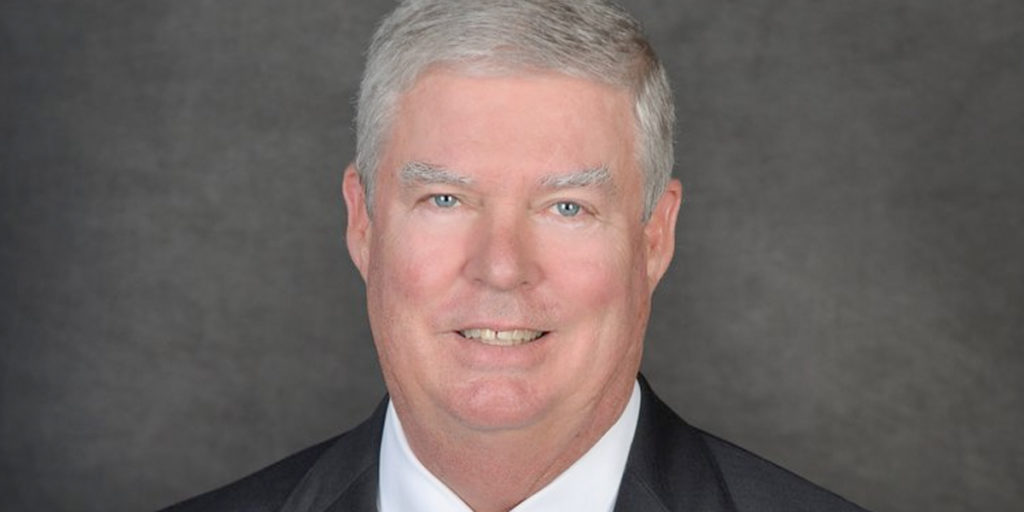Winners, losers and the joker of the tax increase fight

Wow, are there some big winners and big losers this week in the gas tax fight. I’m going to look at this objectively, and call myself a loser. We’ll get to that in a minute. Winner #1: I’d be remiss not to point out that the big winner in securing the gas tax was the new and improved Business Council of Alabama. Much to the chagrin of the people who wished it dead during the Bill Canary years. The BCA is now back and stronger than ever under the leadership of Katie Boyd Britt. It was with the support of Katie and the BCA board that the gas tax fast-tracked through the state legislature during special session. BCA, Katie, y’all are winner #1. Winner #2: Those who forced change at the BCA and hired Katie Britt. Make no mistake Canary would have loved to hold onto power if not for the public departure of Alabama’s biggest businesses from the council to force change. Those same individuals had the wherewithal to hire Britt away from Senator Richard Shelby. Here’s looking at BCA Chairman Mark Crosswhite. Undoubtedly, Crosswhite drove this train and put Britt at the control. Winner #3: Senator Richard Shelby. He made his position on this bill known and few people wanted to face his wrath if they went against his will. Certainly no one from Mobile stood a chance as a “no” vote. Love or hate that level of influence, it worked well for him and his priority: the Port of Mobile. Winner #4: Anybody associated with roads and roadbuilding. That includes anybody who contracts with ALDOT, the cities or the counties. Yay! You guys are getting more money. Winner #5: The cities and the counties, who now have more money to play with in their budgets. What was the price of these additional funds? Not speaking up for Alabama taxpayers and pushing an offset for the gas tax or working against it. Loser #1: Me! Okay well not just me, but rather those few of us who were adamantly opposed to the gas tax, but could not get their voices heard or amplified enough to stop it. Too little, too late. Too few of us speaking out. This goes to prove just how important it is for conservatives to regroup before the next election cycle (more on that coming soon). Loser #2: The taxpayers. We need to do more, and do better. Income taxes, and high sales taxes. We need to work together to offset this gas tax. Loser #3: Not who you’d expect, but I’m going to say Gov. Kay Ivey. Why? Because this is Kay’s legacy. Her legacy is her first act as officially being elected governor, rather than assuming the position post-scandal/resignation, is raising taxes. Way to disappoint a conservative constituency who had high hopes for you coming in a a red state governor. Jokes on you: Everyone who thought Walt Maddox‘s campaign was too liberal for the state: medicaid expansion, gas tax, and lottery? Rumor is we’re getting all three as part of this deal.
Court rules gun maker can be sued over Newtown shooting

Gun-maker Remington can be sued over how it marketed the rifle used to kill 20 children and six educators at Sandy Hook Elementary School in 2012, a divided Connecticut Supreme Court ruled Thursday. Gun control advocates touted the ruling as providing a possible roadmap for victims of other mass shootings to circumvent a long-criticized federal law that shields gun manufacturers from liability in most cases when their products are used in crimes. Gun rights supporters bashed the decision as judicial activism and overreach. In a 4-3 decision, justices reinstated a wrongful death lawsuit against Remington and overturned the ruling of a lower court judge, who said the entire lawsuit was prohibited by the 2005 federal law. The majority said that while most of the lawsuit’s claims were barred by the federal law, Remington could still be sued for alleged wrongful marketing under Connecticut law. “The regulation of advertising that threatens the public’s health, safety, and morals has long been considered a core exercise of the states’ police powers,” Justice Richard Palmer wrote for the majority, adding he didn’t believe Congress envisioned complete immunity for gun-makers. Several lawsuits over mass shootings in other states have been rejected because of the federal law. The plaintiffs in Connecticut include a survivor and relatives of nine people killed in the massacre. They argue the Bushmaster AR-15-style rifle used by Newtown shooter Adam Lanza is too dangerous for the public and Remington glorified the weapon in marketing it to young people, including those with mental illness. Remington, based in Madison, North Carolina, has denied wrongdoing and previously insisted it can’t be sued because of the 2005 law, called the Protection of Lawful Commerce in Arms Act. A Remington spokesman said Thursday the company had no comment on the court ruling. “We have no timeline for any comments to be made on the subject,” spokesman Eric Suarez wrote in an email to The Associated Press. James Vogts, a lawyer for Remington, has cited the 2005 federal law and previously said the Bushmaster rifle is a legal firearm used by millions of people for hunting, self-defense and target shooting. Lanza, 20, shot his way into the locked school in Newtown on Dec. 14, 2012, and killed 20 first-graders and six educators with a Bushmaster XM15-E2S rifle, similar to an AR-15. He shot his mother to death in their Newtown home beforehand, and killed himself as police arrived at the school. Connecticut’s child advocate said Lanza’s severe and deteriorating mental health problems, his preoccupation with violence and access to his mother’s legal weapons “proved a recipe for mass murder.” Nicole Hockley, whose 6-year-old son Dylan died in the shooting, said Thursday that a main goal of the lawsuit is to stop Remington and other gun makers from gearing their advertising toward troubled young men. “We have always said our case is about reckless sales and marketing to disturbed youth,” Hockley said. “We wanted our day in court. This is a step forward to ensure that manufacturers like Remington are not allowed to keep targeting people who are at risk.” A gun industry group, the National Shooting Sports Foundation, which happens to be based in Newtown, said the state Supreme Court ruling was an “overly broad interpretation” of an exception to the 2005 federal law. “The majority’s decision today is at odds with all other state and federal appellate courts that have interpreted the scope of the exception,” the group said in a statement, adding it “respectfully disagrees with and is disappointed by the court’s majority decision.” Connecticut Chief Justice Richard Robinson focused much of the dissenting opinion on the intent of Congress to limit gun-makers’ liability. “Because the distastefulness of a federal law does not diminish its preemptive effect, I would affirm the judgment of the trial court striking the plaintiff’s complaint in its entirety,” Robinson wrote. U.S. Sen. Richard Blumenthal, a Connecticut Democrat, called the ruling a victory for gun violence victims that gives moment to an effort by him and other federal legislators to repeal the 2005 law. “It’s a wow moment in American legal history,” he said. “It will change the legal landscape for this industry, potentially all across the country.” Blumenthal said the ruling reminded him of early court victories against tobacco companies that led them to disclose damaging internal documents and later agree to billions of dollars in legal settlements over sickened smokers. Joshua Koskoff, a lawyer for the plaintiffs, has said the Bushmaster rifle and other AR-15-style rifles were designed as military killing machines and should never have been sold to the public. He accuses Remington of targeting younger, at-risk males through “militaristic marketing and astute product placement in violent first-person shooter games.” “The families’ goal has always been to shed light on Remington’s calculated and profit-driven strategy to expand the AR-15 market and court high-risk users, all at the expense of Americans’ safety,” Koskoff said Thursday. “Today’s decision is a critical step toward achieving that goal.” The lawsuit seeks undisclosed damages. Military-style rifles have been used in many other mass shootings, including in Las Vegas in October 2017 when 58 people were killed and hundreds more injured. The case was watched by gun rights supporters and gun control advocates across the country as one that could affect other cases accusing gun-makers of being responsible for mass shootings. Several groups, ranging from the NRA to emergency room doctors, submitted briefs to the court. The 2005 federal law has been cited by other courts that rejected lawsuits against gun makers and dealers in other high-profile shooting attacks, including the 2012 Colorado movie theater shooting and the Washington, D.C., sniper shootings in 2002. Robert J. Spitzer, chairman of political science at the State University of New York at Cortland and an expert on guns and the Second Amendment, said the Connecticut ruling runs counter to the 2005 federal law. Even though the court allowed the case to proceed, he said, there still be a very high bar for successfully suing Remington. “The likelihood
Personnel note: Birmingham Business Alliance names Fred McCallum interim president, CEO

The Birmingham Business Alliance (BBA) announced retired AT&T Alabama President Fred McCallum has been named interim president and CEO on Thursday. McCallum is a former BBA chairman. “We are proud to have Fred join the BBA in this transitional time,” said Nancy Goedecke, 2019 Chairwoman of the BBA. “His leadership and prominence in the business community – both local and statewide – will ensure the BBA remains on solid ground during the search for a permanent CEO. We are confident Fred will set a strong example of collaboration and cooperation for the organization moving forward.” In addition to serving as Chairman of the BBA in 2013, McCallum was an active member of the Public Policy Committee for many years and served in volunteer roles during the creation of the BBA in 2009 and in its first strategic plan, Blueprint Birmingham. He will oversee daily operations of the BBA during the search for a permanent president and CEO, being conducted by the BBA’s Executive Committee. “I’m excited to return to the work of the BBA and serve its investors and the Birmingham business community in this role,” said McCallum. “My priorities will be to ensure that the BBA remains focused on growing jobs in the Birmingham region and that we are meeting the needs of our investors. This isa transformative time for Birmingham and the BBA, as we recognize our 10th year of helping our region grow.” McCallum is taking over for current BBA CEO Brian Hilson who announced his resignation last month in order to take another economic development position in the state. His new position has yet to be announced.
Birmingham’s Kristina Scott pushes for simpler Student Aid submission process in US Senate

College students across the country universally dread one form: the FASFA. The Free Application for Federal Student Aid (FAFSA) form is both confusing and time consuming to fill out — for many families the FAFSA is longer than their tax form — and yet it’s a necessary task for students who need aid in paying their tuition. On Tuesday, the U.S. Senate’s Health, Education, Labor and Pensions (HELP) Committee held a hearing to hear from experts across the country on the benefits, and how to best, streamline the FASFA application. Among those experts was Birmingham’s own Kristina Scott, executive director of Alabama Possible — a nonprofit organization that removes barriers to prosperity in Alabama through education, collaboration, and advocacy. “FAFSA continues to be a barrier to post-secondary attainment. Most people get help filing their taxes from something like HR Block or using Turbo Tax,” Scott testified. “One of my questions is do we need to build a similar system for FAFSA completion or would our limited private resources be better spent supporting student success.” Scott explained Alabama is the nation’s sixth poorest state, and 900,000 Alabamians, 300,000 of whom are children, live below the poverty line. “A low-income student is only half as likely as a high-income student to complete a postsecondary certificate or degree by age 26. However, those low-income Americans who do obtain a college degree are five times more likely than their peers to rise out of poverty,” Scott explained to the committee. Scott made three recommendations to the committee on how to improve the FAFSA process: Streamline the FAFSA. A streamlined FAFSA with 15-25 questions about the student, their family, and where they want to go to college would give the US Department of Education the ability to assess a student’s need while cutting out unnecessary and often-intrusive questions. Focus the process on funds available to pay for college. Focus the process on what a family is expected to pay, instead of on grants and other assistance for which they qualify, is confusing and off-putting for the low-income families we serve. Decrease the verification burden.Verification is an audit-like process to confirm information provided on the FAFSA. Roughly half of all filers eligible for a Pell Grant are flagged for verification.
Beto O’Rourke enters 2020 race attempting bipartisan appeal

Former Texas Democratic Rep. Beto O’Rourke announced Thursday that he’s running for president in 2020, pledging to win over voters from both major parties as he tries to translate his political celebrity into a formidable White House bid. Until he challenged Republican Sen. Ted Cruz last year, O’Rourke was little known outside his hometown of El Paso. But the Spanish-speaking 46-year-old former punk rocker became a sensation during a campaign that used grassroots organizing and social media savvy to mobilize young voters and minorities. He got within 3 percentage points of upsetting Cruz in the nation’s largest red state — and shattered fundraising records in the process — immediately fueling chatter that he could have higher ambitions. “This is going to be a positive campaign that seeks to bring out the very best from every single one of us, that seeks to unite a very divided country,” O’Rourke said in a video announcement with his wife on a couch. “We saw the power of this in Texas.” Weeks of teasing an announcement are behind him, but O’Rourke now must prove whether the energy he brought to the Texas campaign will resonate on a much larger stage. For all the buzz associated with his candidacy, the former three-term congressman hasn’t demonstrated much skill in domestic or foreign policy. And, as a white man, he’s entering a field that has been celebrated for its diverse roster of women and people of color. O’Rourke’s entry is already reverberating around the crowded field of Democratic presidential hopefuls. California Sen. Kamala Harris singled him out by name in a Thursday email to supporters, noting that a “record number of women and people of color” are running and adding she was looking forward to “substantive debates” with candidates including “the newest to join the race today, Beto O’Rourke.” O’Rourke had never before visited Iowa, which kicks off presidential voting, but said during his first stop at a coffeeshop there Thursday, “I could care less about your party persuasion, your religion, anything other than the fact that, right now, we are all Americans.” His comments were carried live on several cable TV networks, the kind of exposure other 2020 Democrats don’t often get. O’Rourke has promised to travel the country listening to voters, then will return to El Paso, on the border with Ciudad Juarez, Mexico, on March 30 for an official campaign kickoff. O’Rourke joins a large and unsettled 2020 field in which his fundraising prowess, southwestern Texas charm and anti-establishment attitude have quickly turned political heads. He passed just three bills while in Congress, and a lack of governing experience could hurt, but President Donald Trump‘s rise suggests that the U.S. electorate might welcome an outspoken outsider. The sports and entertainment world already had its eye on O’Rourke during the Senate campaign: NBA star LeBron James wore an O’Rourke hat after video of the Texan defending NFL players’ right to protest during the national anthem went viral. Beyonce, a Houston native, endorsed O’Rourke. And he was the only presidential prospect interviewed in February by Oprah Winfrey, who appeared genuinely excited about the prospect of an O’Rourke White House run. Should he parlay a 2018 Senate defeat into a successful 2020 White House campaign, O’Rourke would be the first U.S. politician to do so since Abraham Lincoln lost his Senate bid to Stephen Douglas in Illinois in 1858, then was elected president two years later. Democrats have long dreamed that a booming Hispanic population and droves of Americans moving to Texas from elsewhere could turn the nation’s largest red state blue and transform the Electoral College by making the Republican path to the presidency all but impossible. Another Texas Democrat, former Obama administration housing chief Julian Castro, was already running. Trump has blasted the idea of an O’Rourke presidential try, calling him a “flake” and a “total lightweight” and joking, “I thought you were supposed to win before you run for president.” O’Rourke visited all 254 of Texas’ counties while running for Senate and often drew larger-than-expected crowds, including in heavily conservative areas. It’s a strategy that could serve him well in Iowa, where Cruz campaigned in all 99 counties before winning its caucus during the 2016 GOP presidential primary. O’Rourke’s advisers have reached out to early-state Democratic officials seeking advice for potential hires and strategy. In New Hampshire, home to the nation’s first primary, an O’Rourke adviser asked specifically for guidance on how they might schedule a driving tour through the state should he arrive coming from the West — indicating that a cross-country trip of sorts might be part of a campaign rollout plan. Although he’s entering the race relatively late, O’Rourke has strong national name recognition. Democratic operatives in states with early presidential primaries, including South Carolina and Nevada, formed Draft Beto groups that spent months fundraising and building campaign infrastructure until their candidate was ready. O’Rourke refused donations from outside political groups and shunned pollsters during his Senate campaign though he’s not completely sworn off polling for a presidential run. He nonetheless harnessed growing nationwide popularity to rake in $80-plus million during the Senate bid, including a staggering $38 million from July to September 2018 alone. While challenging Cruz, O’Rourke insisted that he had no interest in running for president. But during his election night concession speech, he let rip the kind of casual swearing that’s become a trademark, declaring to supporters on national television: “All of you, showing the country how you do this, I’m so f—ing proud of you guys,” and promising, “We’ll see you down the road.” Republished with permission from the Associated Press.
Alabama town appoints interim mayor to permanent role

After months of interim leadership for the town of Gordon, the community has a new mayor. WSFA-TV reports the council voted Tuesday to appoint former Mayor Pro-tem Shana Ray as the new mayor. Ray had been serving temporarily since October after former Mayor Elbert Melton was stripped of his duties following Hurricane Michael. Some accused him of abandoning the the town’s 300-plus residents. He was officially stripped of the title after he was convicted of voter fraud in January. Ray, who says she is the town’s first black female mayor, says she hopes to revive the town’s image. The appointment means the state is not expected to intervene. Republished with permission from the Associated Press.
Daniel Sutter: Taxes, roads, and limited government

The Alabama legislature kicked off its new term with a special session to increase the gas tax, a result which seemed foreordained. Nonetheless, the gas tax raises interesting economic and political considerations. Our gas tax is currently just under 21 cents a gallon, which ranks 41st nationally according to the Tax Foundation, or 36th if we adjust for state hourly wages. Pennsylvania has the highest gas tax at nearly 59 cents a gallon, and eight other states have taxes in excess of 40 cents. The proposed 10 cent increase over three years would put our tax 23rd, 17th when adjusted for income. Over eighty percent of Alabama’s tax revenues are earmarked for specific purposes, the most of any state. The gas tax is dedicated for highways, so the new revenues should go to road improvements. Revenue sharing will allow counties to repair their roads as well. Alabama has many roads and bridges needing repairs. According to the Federal Highway Administration, we had 1,200 structurally deficient bridges at the end of 2017. I can’t say exactly what this means, but structurally deficient doesn’t sound like a compliment. An earmarked gas tax functions as a user fee, which implements the “benefit principle” of taxation. Citizens who benefit the most from roads will pay a larger share of the cost of repairs. The Tax Foundation, which generally opposes taxes, likes gas taxes: “Because they adhere to the benefit principle, gas taxes … are the revenue tools most suitable for generating the funds needed to maintain and repair public roads over time.” Unfortunately, lower income families spend relatively more on gas, making the gas tax regressive. This means that lower income households pay a higher percentage of income in taxes. The gas tax does poorly on the ability to pay principle of taxation. This would not be as problematic if Alabama did not rely on regressive sales taxes for so much state and local tax revenue. The failure to invest adequately in roads costs our state and nation. Twenty one percent of highways nationally have poor pavement condition, which costs Americans $120 billion annually in added repair costs, or over $500 per driver. Traffic congestion costs Americans another $160 billion in lost time and wasted gas. Forty percent of urban interstate highways are congested. Congestion is arguably due to a failure to expand road capacity. Despite our low gas tax, Alabama’s roads and bridges are not, relatively speaking, in poor shape. Seven percent of our bridges are structurally deficient, which ranks 30th among states, and only two percent of our highways have poor pavement condition. Is a tax increase truly necessary to maintain our roads? The general wastefulness of government, like the Pentagon spending $4.6 million in lobster and crab in one month for military contractors, probably gives many Alabamians pause. If Washington, Montgomery, and our cities and counties spent our tax dollars wisely, they’d probably have enough money to fix our roads. While we should never tolerate government waste, waste is unavoidable because costs are very hard to assess. We also place many legal requirements on government contractors, increasing costs. Government waste does not change the reality that road maintenance requires resources. If we wait to eliminate all government waste before approving new taxes, our bridges and roads will likely have crumbled. Unwillingness to pay taxes can lead states to seek alternative revenues. You’ve probably seen signs along roads warning of damaged guardrails. Tennessee bills drivers who damage guardrails in accidents to avoid spending tax dollars. This policy led to the family of a teenage girl killed in 2016 when her car hit a median guardrail being billed $3,000 for repairs. We may not like taxes, but alternatives can be more offensive. Alabama has some of the lowest state and local taxes, so perhaps we shouldn’t complain about the gas tax hike. I would suggest that fiscal conservatives must also ask government to do less for us. Limited government does not mean big government on the cheap. Daniel Sutter is the Charles G. Koch Professor of Economics with the Manuel H. Johnson Center for Political Economy at Troy University and host of Econversations on TrojanVision. The opinions expressed in this column are the author’s and do not necessarily reflect the views of Troy University.

